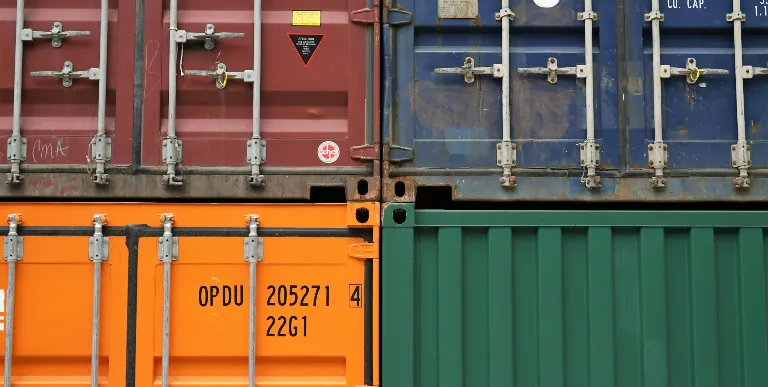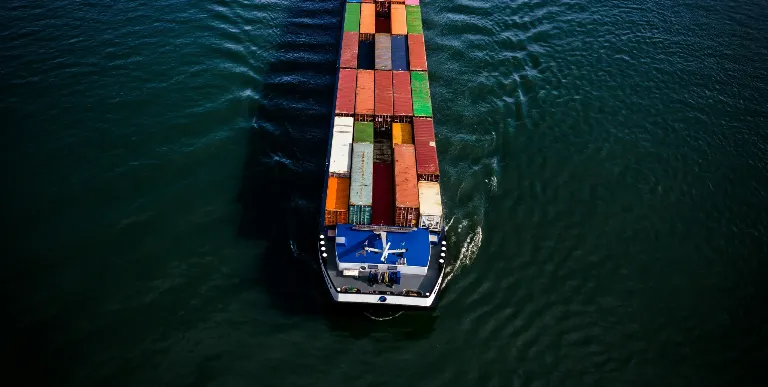Cocoa prices have seen a pre-Easter rally driven by fears of supply decline!
Last week, cocoa gained 5.4%, reaching new record levels. At present, cocoa prices have skyrocketed, reaching a record high of over $10,000 per tonne. This surge is likely to cause chocolate prices to increase, including Easter eggs next year. Consumers with a sweet tooth can expect to feel the impact at the checkout.
Cocoa prices have seen a pre-Easter rally driven by fears of supply decline!
Last week, cocoa gained 5.4%, reaching new record levels. At present, cocoa prices have skyrocketed, reaching a record high of over $10,000 per tonne. This surge is likely to cause chocolate prices to increase, including Easter eggs next year. Consumers with a sweet tooth can expect to feel the impact at the checkout.
What is causing the Cocoa price surge?
Chocolate has just become a luxury good. Believe it or not, but a tonne of cocoa is now more expensive than a tonne of copper. This would have been unthinkable only a few months ago.
The increase occurs a week before the holidays when the seasonal demand for cocoa is very high.
Chocolate prices are reaching record levels this year due to a combination of several factors, including poor harvests in West Africa. This region accounts for about 70% of global cocoa production, and over the last three years, harvests have been smaller due to warmer and drier climates, which hinder cocoa cultivation. Cocoa production has fallen to its lowest levels since the 2015/2016 season, with it being the third consecutive year of deficit. Deliveries to ports are 20 to 30% lower than the previous year and this deficit will be difficult to overcome through increased production.
Chart: 1YR up 225%, cocoa price reaching $10,000 per tonne
 Source:xStation5
Source:xStation5
Please be aware that information and research based on historical data or performance does not guarantee future performance or results. Past performance is not necessarily indicative of future results, and any person acting on this information does so entirely at their own risk
Prices have doubled since the beginning of the year, with the price reaching 10,000 USD. Moreover, more and more companies are trying to find substitutes for cocoa or new supply directions.
Malaysia's Guan Chong, one of the largest cocoa processors, is actively seeking cocoa supplies from countries such as Ecuador, Peru, and Indonesia, as concerns arise about the non-fulfillment of contracts by major planters from the Ivory Coast and Ghana.
ICCO expects a record deficit this year, reaching 400,000 tons. Bloomberg Intelligence analysts have raised concerns, suggesting that the supply problem may not easily pass and could turn into a structural challenge for the entire market. At the same time, global demand for cocoa is growing.
What is the impact on the industry?
Such a sharp increase in cocoa prices has a significant impact on the chocolate industry. Manufacturers have already begun to partially pass on costs to consumers. This problem particularly affects the markets in Europe, which is one of the more important consumers of this raw material. Additionally, this issue is compounded by new EU regulations aimed at limiting the consumption of products contributing to deforestation.
The issue has affected chocolate producers around the world with The Hershey Company in the US being down more than 2.24% this week (as of 27th March) and the owner of Cadbury’s, Mondelez International, has seen its share price fall 2.45%. Could this be a trend and will other producers be affected the same way?
 There is concern that financial practices in the cocoa marker are contributing to the price surge. So what happens is, cocoa traders often buy physical cocoa while holding long positions and simultaneously sell cocoa futures contracts with short positions to manage risk. This is supposed to offset any losses.
There is concern that financial practices in the cocoa marker are contributing to the price surge. So what happens is, cocoa traders often buy physical cocoa while holding long positions and simultaneously sell cocoa futures contracts with short positions to manage risk. This is supposed to offset any losses.
When cocoa prices rise rapidly, the traders holding short positions face margin calls which demand for additional funds. To meet these margin calls, traders may be forced to buy back their short positions, further driving up cocoa prices. Smaller players may struggle financially and be forced out of the market, reducing supply and pushing prices even higher.
This situation, where the price is driven by financial activities rather than cocoa supply and demand fundamentals, raises concerns about potential market instability. Similar situations in other commodities have led to the collapse of some energy providers after major price swings.
The impact on the cocoa market remains to be seen. It is important to monitor the situation closely for signs of economic instability.
The concern is that, like the fallout in the energy market after the Ukraine war, smaller players in the cocoa trade may be forced out first, further tightening supply and potentially causing even more price volatility.
This material is a marketing communication within the meaning of Art. 24 (3) of Directive 2014/65/EU of the European Parliament and of the Council of 15 May 2014 on markets in financial instruments and amending Directive 2002/92/EC and Directive 2011/61/EU (MiFID II). Marketing communication is not an investment recommendation or information recommending or suggesting an investment strategy within the meaning of Regulation (EU) No 596/2014 of the European Parliament and of the Council of 16 April 2014 on market abuse (market abuse regulation) and repealing Directive 2003/6/EC of the European Parliament and of the Council and Commission Directives 2003/124/EC, 2003/125/EC and 2004/72/EC and Commission Delegated Regulation (EU) 2016/958 of 9 March 2016 supplementing Regulation (EU) No 596/2014 of the European Parliament and of the Council with regard to regulatory technical standards for the technical arrangements for objective presentation of investment recommendations or other information recommending or suggesting an investment strategy and for disclosure of particular interests or indications of conflicts of interest or any other advice, including in the area of investment advisory.
The marketing communication is prepared with the highest diligence, objectivity, presents the facts known to the author on the date of preparation and is devoid of any evaluation elements. The marketing communication is prepared without considering the client’s needs, his individual financial situation and does not present any investment strategy in any way. The marketing communication does not constitute an offer of sale, offering, subscription, invitation to purchase, advertisement or promotion of any financial instruments.
XTB.Ltd. is not liable for any client’s actions or omissions, in particular for the acquisition or disposal of financial instruments, undertaken on the basis of the information contained in this marketing communication.
In the event that the marketing communication contains any information about any results regarding the financial instruments indicated therein, these do not constitute any guarantee or forecast regarding the future results.

Uranium Trading - How to Invest in Uranium?

Emissions Trading - How to Invest in Carbon CO2?

Is Gold Becoming the World's New Reserve Currency? | Gold Investing
This content has been created by XTB S.A. This service is provided by XTB S.A., with its registered office in Warsaw, at Prosta 67, 00-838 Warsaw, Poland, entered in the register of entrepreneurs of the National Court Register (Krajowy Rejestr Sądowy) conducted by District Court for the Capital City of Warsaw, XII Commercial Division of the National Court Register under KRS number 0000217580, REGON number 015803782 and Tax Identification Number (NIP) 527-24-43-955, with the fully paid up share capital in the amount of PLN 5.869.181,75. XTB S.A. conducts brokerage activities on the basis of the license granted by Polish Securities and Exchange Commission on 8th November 2005 No. DDM-M-4021-57-1/2005 and is supervised by Polish Supervision Authority.


